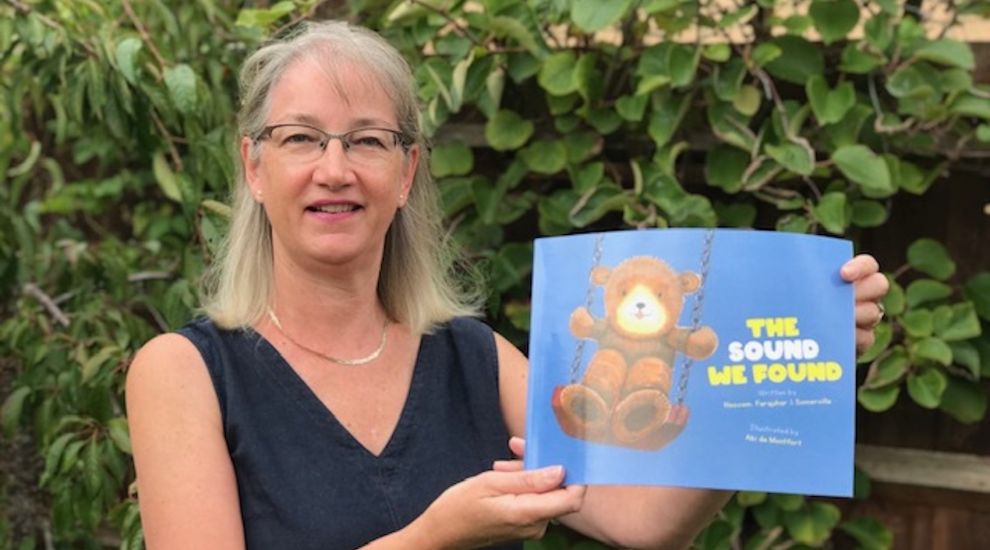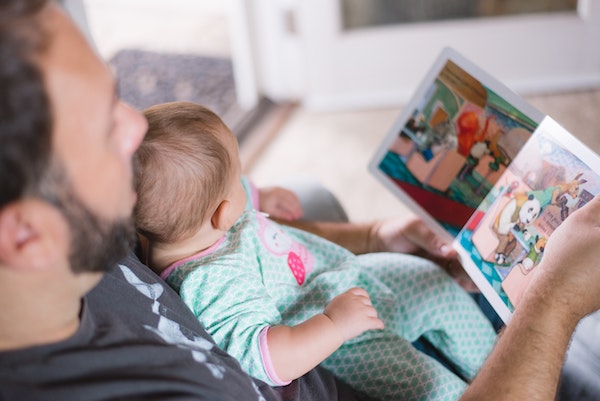


A specialist Speech and Language Therapist from Jersey has created a book to help babies and young children struggling with speaking to find sounds.
‘The Sound We Found’ is based on techniques used in speech and language therapy (SLT) to give parents a “fun and low-pressure way” of introducing sounds and words into their children’s lives.
The book follows ‘Baby Bear’ over the course of a day, with the same rhyming sounds repeated throughout to encourage early sound and rhyme play.
It was written by Jersey's Hélène Sommerville, with the help of Rhian Hoccom and Lisa Farquhar. All three are Speech and Language Specialists and got working on the book in November 2018 following discussions among the committee for the Centre of Excellence Network for cleft palates.
Video: Co-author Rhian Hoccom presents 'The Sound We Found'.
Ms Sommerville explained that the book is based on a technique she and other SLTs use with children who either have delayed speech or do not pronounce certain sounds correctly. Called “input modelling”, the approach is multi-sensory and involves parents and adults showing and repeating sounds through sound play.
The Sound We Found' enables children to hear and see how sounds are made, without any pressure to repeat them. Through regularly sharing the book, sounds are repeatedly modelled to the child who may then attempt them themselves.
The book also provides an example of how sounds can be reinforced throughout the day during play and daily routines.
“We are born ready to acquire language and the way we do that is by hearing sounds,” Ms Sommerville said. “What we know is that babies are listening to sound and to words, they have to hear sounds over and over in order to start reproducing them.

Pictured: Repeating sounds can help encourage speech development in babies and young children.
“They may not start repeating the first time they hear a sound, but they have that sound stored in their sound system so that they can use it when they are ready.
“You just keep modelling the sound and eventually they will start repeating it. We just know from the children we work with that it does work.”
Ms Sommerville said that while the book will be particularly useful to children with delayed speech development, it can be enjoyed by all children.
“It has a universal appeal,” she said. “You are not going to harm a baby by doing speech modelling, they may start speaking up earlier than they would have, they might start at the same time, but it certainly won’t do any harm.
“It’s a fun, low-pressure way of introducing speech modelling.”

Pictured: The authors hope ‘The Sound We Found’ will also help stimulate a love of reading.
With the pandemic affecting not only the delivery of SLTs but how much input children get from adults on a daily basis, Ms Somerville said the book comes just at the right time.
“Children and babies are not seeing adult faces because they are wearing masks,” she said. “Their whole life has just been changed, [the pandemic] has had a really big impact on children.”
The first in a planned series of picture books, the authors hope their story will not only act as a form of early intervention, but also promote a love of books in children.
“Young children learn sounds through hearing them regularly,” they said. “Early intervention is the key to minimising speech sound difficulties and was the starting point for us coming up with The Sound We Found.
"Targeting sounds at the earliest opportunity encourages correct speech patterns and discourages speech errors which can become ingrained and difficult to resolve. Involving parents and carers, who spend the most time with the child, is crucial to this process.
“Sharing books with your child will activate their imagination, expand their understanding of the world around them and help them broaden their vocabulary and listening skills.”
Comments
Comments on this story express the views of the commentator only, not Bailiwick Publishing. We are unable to guarantee the accuracy of any of those comments.